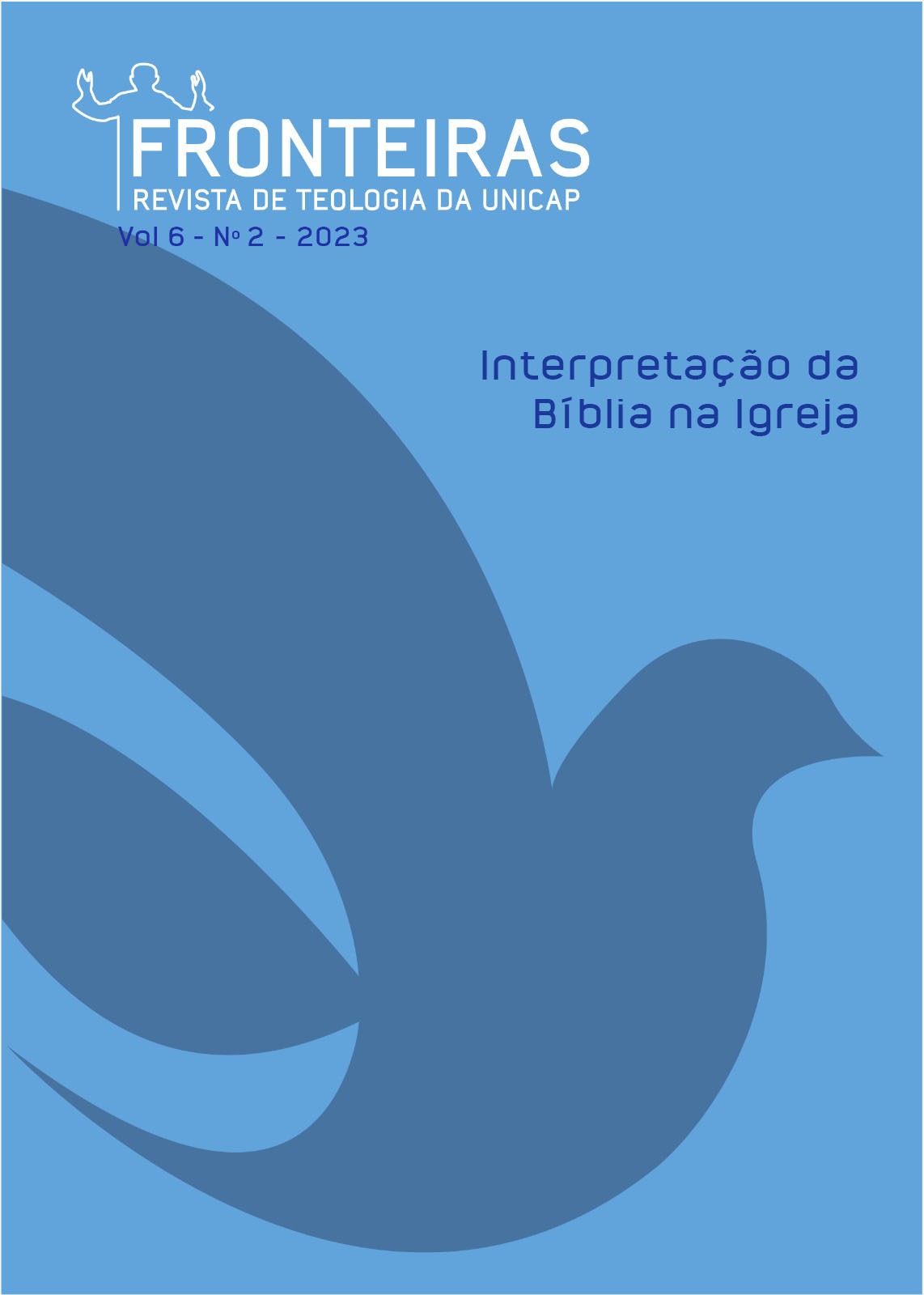Presentation of the current number
DOI:
https://doi.org/10.25247/2595-3788.2023.v6n2.p180-184Keywords:
Church, Bible, AtualityAbstract
Fronteiras - Revista de Teologia da UNICAP, as part of the celebrations for the 30th anniversary of the document The Interpretation of the Bible in the Church, brings as its Dossier for the second issue of 2023 the same theme as that document from the Pontifical Biblical Commission. The April 1993 document made an official statement regarding the use of modern scientific methods for the interpretation of Sacred Scripture. This position was all the more necessary given that many controversies had arisen between Catholic researchers and the hierarchy at the beginning of modern biblical exegesis. The aim of the 1993 document was to endorse the use of modern methods and approaches in biblical studies, to point out their positive points and limitations and to indicate the most appropriate ways of interpreting the Scriptures that take into account their concomitantly divine and human character.
Downloads
References
ANDRADE, Aíla Luzia P. de. Apresentação do v. 6, n. 2, 2023. Fronteiras - Revista de Teologia da Unicap, Recife, PE, Brasil, v. 6, n. 2, p. 180–184, 2024. DOI: 10.25247/2595-3788.2023.v6n2.p180-184. Disponível em: https://www1.unicap.br/ojs/index.php/fronteiras/article/view/2567.
Downloads
Published
Issue
Section
License
Copyright (c) 2023 Aíla Luzia Pinheiro de Andrade

This work is licensed under a Creative Commons Attribution 4.0 International License.
Autores que publicam nesta revista concordam com os seguintes termos:
- Autores mantém os direitos autorais e concedem à Fronteiras - Revista de Teologia da Unicap o direito de primeira publicação, com o trabalho simultaneamente licenciado sob a Licença Creative Commons Attribution que permite o compartilhamento do trabalho com reconhecimento da autoria e publicação inicial nesta Revista.
- Autores têm autorização para assumir contratos adicionais separadamente, para distribuição não-exclusiva da versão do trabalho publicada nesta revista (ex.: publicar em repositório institucional ou como capítulo de livro), desde que reconheça e indique a autoria e a publicação inicial nesta Revista.
- Autores têm permissão e são estimulados a publicar e distribuir seu trabalho online (ex.: em repositórios institucionais ou na sua página pessoal) a qualquer momento depois da conclusão de todo processo editorial, já que isso pode gerar alterações produtivas, bem como aumentar o impacto e a citação do trabalho publicado (Veja O Efeito do Acesso Livre).






















